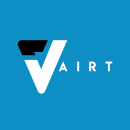Vacation rental houses. Parking spots. Even dream homes. Before long, they’ll all be purchased on a blockchain. In fact, real estate blockchain is already gaining popularity as a way for buyers, sellers and investors to interact with each other and learn about properties.
But why is blockchain poised to give the real estate industry such a significant leg up? First and foremost, by leveraging distributed ledger technology (DLT), it increases trust through greater transparency. And in real estate, trust — of a website, an agent, a listing — is imperative. Real estate blockchain also expedites contract processes, saves time and reduces costs.
Blockchain Real Estate
- Asset management
- Transaction security
- Marketplaces
- Smart contracts
- Property management
Because the daily rate of real estate transactions is so immense, a common database of leases and purchases is more necessary than ever. Blockchain can provide that. Upgrading the traditional Multiple Listing Service database to a blockchain-based one would create a far more transparent ledger system where brokers and agents could see the entire transaction history of a property.
Besides helping the traditional real estate industry, blockchain is also being adopted by the burgeoning property-sharing sector.
Below are 17 real estate blockchain companies that use the increasingly popular technology to boost business.
Blockchain Real Estate Companies to Know
- Republic
- Vairt
- RealBlocks
- Owny
- Closinglock
- ShelterZoom
- StreetWire
- Ubitquity
- RealT
- CPROP
Blockchain for Asset Management in Real Estate
Location: New York, New York
Republic enables customers to invest in private markets that span sectors like real estate, gaming and crypto. No fees and flexible minimum investment requirements make the platform accessible to investors ages 18 and up. Within the real estate sector, Republic only provides global real estate options that have passed the company’s vetting process. As a result, investors can trust they’re making real estate investments that match their interests and risk tolerance.
Location: Cincinnati, Ohio
Vairt is designed to help users earn secondary income by building and diversifying a global real estate network. The platform offers several resources and tools to provide the best possible outcomes when investing in fractional real estate. That includes market overviews, neighborhood insights, property analysis and long-term support, all operating on a blockchain network for supreme security.
Location: New York, New York
RealBlocks uses blockchain to create new avenues for real estate investing. Its platform lets investors buy fractional interest rather than entire portfolios or assets. Through tokenization that’s applied using blockchain technology, RealBlocks helps reduce fees, speed up processes and provide liquidity options.
Location: Palo Alto, California
Formerly known as RealtyBits, Owny facilitates blockchain-based investing in real-world assets including real estate. Users can create a free account and get verified in under a minute. Once they’ve invested, Owny provides a dashboard that allows them to monitor their assets. Coinbase is among the company’s investors.
Blockchain for Transaction Security in Real Estate
Location: Columbus, Ohio
Formerly known as SafeWire before being acquired by Closinglock, the company presents a solution to the growing wire fraud challenges that real estate firms, agents, clients and industries face due to hacker intervention. The Closinglock platform operates via a blockchain network to ensure security for vulnerable transactions from the moment they are sent to the time they are received and processed, reducing the money, clients and time lost due to wire fraud.
Location: New York, New York
Docuwalk, ShelterZoom’s document management platform, uses blockchain to manage all aspects of the real estate offer and acceptance process. The secure online platform records every action along the path to closing on a real estate deal to ensure an immutable financial record.
Location: New York, New York
StreetWire creates secure transaction solutions for the real estate industry through a data provider-controlled encrypted ledger. Its platform facilitates faster and more transparent property transactions.
Location: Wilmington, Delaware
Ubitquity’s products include its Non-Fungible Title platform giving titles a digital identity and Ubitquity Pay for crypto payments and real estate transactions. The company says its open-source blockchain platform provides “a simple user experience for securely recording/tracking of title and other critical documents.”
Blockchain for Marketplaces in Real Estate
Location: Aventura, Florida
RealT is a fractional real estate investment platform that allows investors around the world to invest in the U.S. real estate market through a fully compliant, token-based blockchain network. The platform lets investors buy into tokenized properties with permissionless Ethereum and maintain access to cash flows and low maintenance ownership via RealTokens. It gives owners access to rent payments weekly through US-Dollar stable coin, xDai or Ethereum.
Location: New York, New York
CryptoProperties or CPROP builds blockchain data applications that focus on identifying new opportunities, reducing risk and pinpointing issues in the real estate industry. CPROP’s technology is applied to multiple real estate areas, including brokerage transactions, investment management, property development, finance and insurance.
Location: San Francisco, California
Figure uses blockchain technology to provide financial services to consumers and institutions. For example, Crypto Mortgage Plus lets people use crypto for a home mortgage and the company also offers Figure Marketplace, a blockchain-based investment platform.
Blockchain for Smart Contracts
Location: New York, New York
PropertyClub is a real estate platform that uses blockchain to refine the way people market, search for, buy, sell and invest in properties. Using smart contracts, the company conducts real estate transactions digitally using cryptocurrencies like Bitcoin or its own PropertyClub Coin.
Location: Seattle, Washington
SMARTRealty uses smart real estate contracts to enact and maintain property purchase and rental agreements. Whether it’s paying rent, establishing mortgages or purchasing a home, the company’s smart contracts help to establish protocols that, if not met, immediately dissolve a contract.
Location: San Francisco, California
Propy is a real estate marketplace that uses smart contracts to enact property transactions. The company’s platform enables buyers, sellers and agents to use a series of smart contracts that help speed up the real estate process.
Blockchain for Property Management in Real Estate
Location: Brooklyn, New York
ManageGo is leveraging blockchain for rental property owners. The ledger-backed software helps property managers and owners process payments, thoroughly complete credit background checks and manage maintenance ticketing.
Location: Manhattan Beach, California
The Crypto Realty Group is a consulting firm that works with crypto escrow and financial consulting companies to help clients buy and sell residential, commercial, local and international real estate using cryptocurrency.
Location: Ljubljana, Slovenia
Blocksquare’s real estate tokenization protocol can be used to digitize the value of real estate assets while its white-label platform can be used to launch investment platforms. The company says companies of all sizes can take advantage of its blockchain infrastructure.
Frequently Asked Questions
How is blockchain used in real estate?
Blockchain can be used to ensure the security of real estate transactions, facilitate real estate investments and transactions on marketplaces through tokenization, and allow for fractional ownership, among other use cases.
Can you sell a house on the blockchain?
Real estate assets can be tokenized and sold via online marketplaces for cryptocurrencies.













